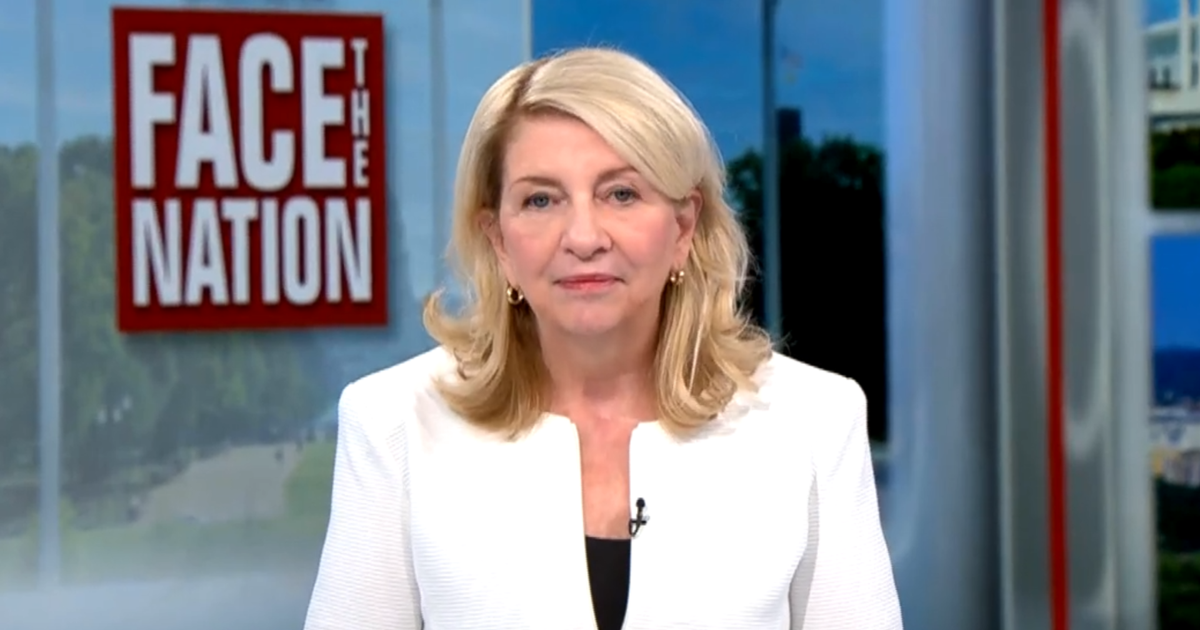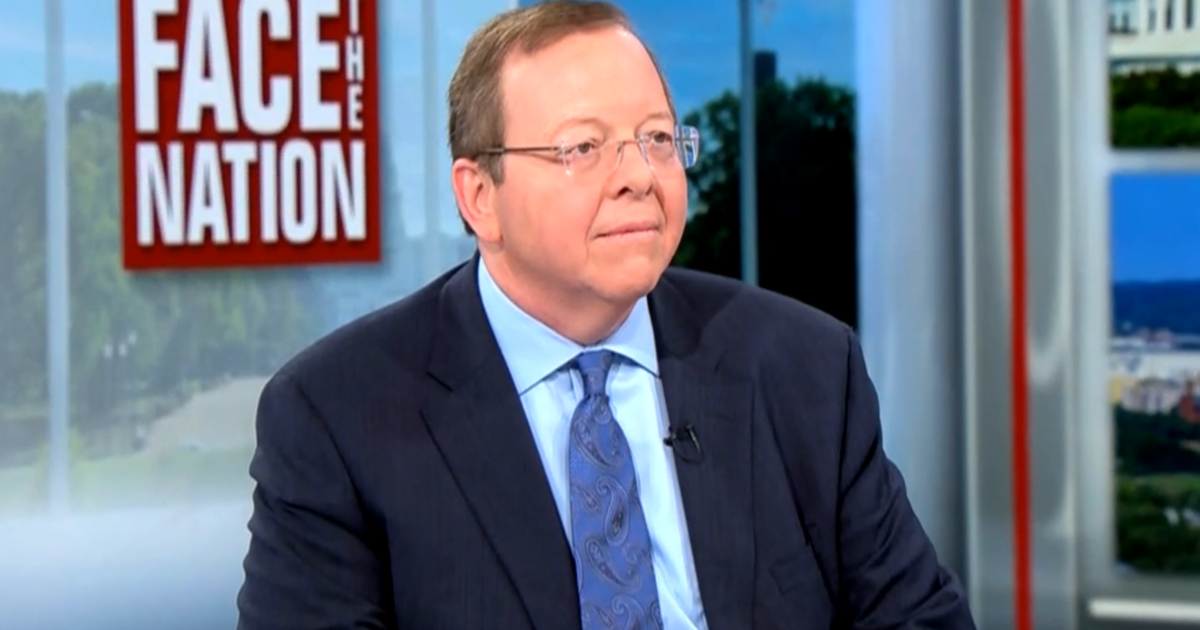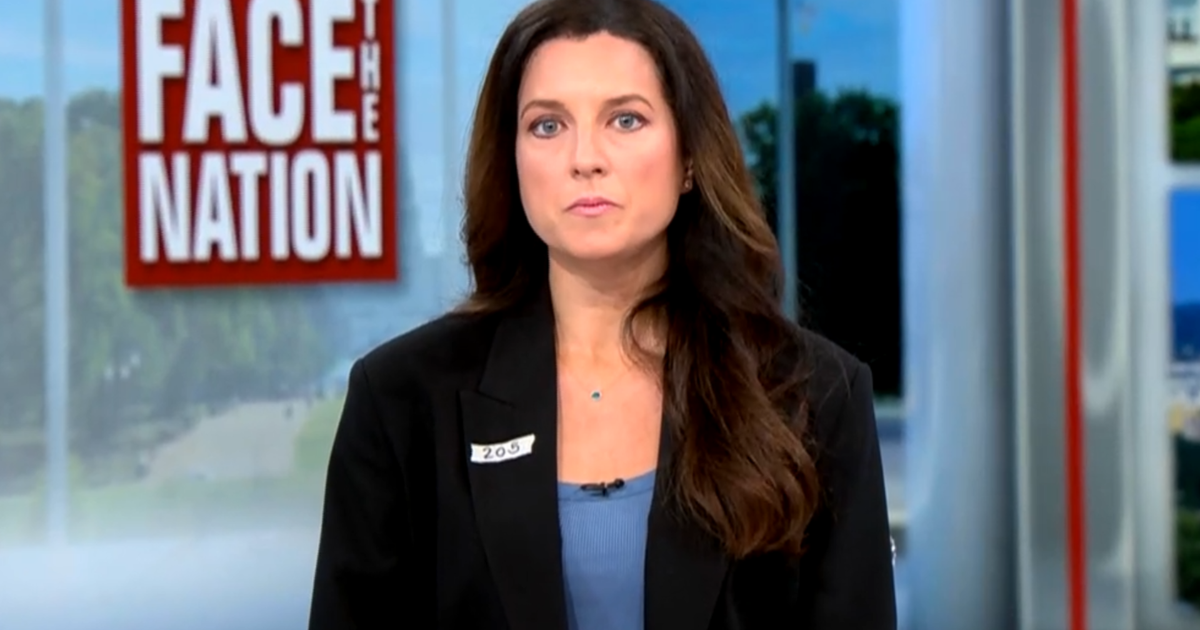Transcript: Save the Children CEO Janti Soeripto on "Face the Nation," Jan. 28, 2024
The following is a transcript of an interview with Janti Soeripto, the CEO of Save the Children, that aired on "Face the Nation" on Jan. 28, 2024.
MARGARET BRENNAN: And we're joined now by Save the Children's CEO Janti Soeripto. I- I want to ask you about it because you were just back from the region you were looking into how much aid can get into Gaza right now to help the kids you are so concerned about? What did you learn?
JANTI SOERIPTO: Thanks, Margaret. Yes, I've just come back after a little over 10 days in the region. And I made it all the way to the border, the Rafah crossing, I managed to see the hundreds and hundreds of trucks waiting in Al Arish to get in. And what we're seeing is still that getting aid into Gaza is still woefully inadequate. We're looking at about 130-150 trucks getting in a day, on a good day. And when I was there, it was actually not a good day, I think less than 100 came in. And let's remind ourselves that before October 7, about 500 trucks made it into Gaza, every day of and a mixture of aid and commercial supplies. So the number that is getting through is still woefully inadequate- inadequate, especially because the needs of course have skyrocketed. And- and even if trucks come in, it is an incredibly cumbersome process. Many, many trucks, offloads and unloads along the way. And then when you're into Rafah to get real last mile delivery or last 100 yards delivery, getting shots in arms of children who need vaccinations, getting food, medical supplies to hospital, getting water to people, that is still incredibly difficult. There's a- one and a half million people stranded in Rafah. People are everywhere, the streets are crowded, trucks and vans have actually difficulty moving. And it's been almost impossible to get any supplies into the north of Gaza, where there are still hundreds of thousands of people stranded.
MARGARET BRENNAN: Yeah, I mean, those pictures are just incredible, showing what that area of Rafah was like. And now just the concentration of humanity stuck there. I- I know that you have joined with other humanitarian organizations, to say that this is unlike any conflict that you have ever seen, in all your years of work. What makes it so different?
JANTI SOERIPTO: It- it really, really is. I mean, we've all- people have nowhere to go, nowhere to go in. We work in a lot of other crises, from Afghanistan, to Sudan, to Ukraine. But there, and the situation is also bad, let me just put that out there. But there, there is still an opportunity for people to flee. Here in Gaza, it is completely impossible and the density of the- of the people on a very small space of land. Now with the constant bombardment after the now long forgotten humanitarian pause we had in November, it is just- it makes it- almost impossible to do, you know, at scale humanitarian responses, so that makes it hard. We're also incredibly concerned about the health situation vastly deteriorating. Only a few hospitals are still really operational. And it means that children in particular who are more vulnerable, are also suffering from what ought to be resolvable, treatable illnesses, infections, respiratory tract diseases, diarrhea now become life threatening, because there- there are no- no medicine to actually treat them.
MARGARET BRENNAN: The UN agency in Gaza said its services are collapsing as aid is now being paused because of this revelation by Israel that 12 people were tied to the attack on October 7. I know the Israeli government saying other aid organizations not tainted with terrorism can step in. You're one of those aid organizations. Can you handle stepping in?
JANTI SOERIPTO: Yeah- yeah I think I personally- we- we think that's an example of some magical thinking. There is no way that the collective humanitarian sector can completely replace UNRWA. You know, in the short space of time that that will be necessary. Let's not forget, UNRWA has had- has had 13,000 staff in Gaza. Save the Children currently has 23- 23 staff--
MARGARET BRENNAN: Okay--
JANTI SOERIPTO: In Gaza. Yes. And hundreds of community volunteers- and--
MARGARET BRENNAN: I have to--
JANTI SOERIPTO: Many aid organizations are in the same spot--
MARGARET BRENNAN: I'm sorry, I have to cut you off because of some breaking news. We'll be right back.



